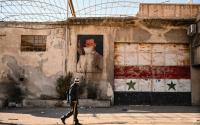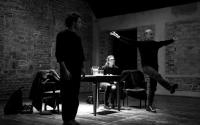 Private Harry Farr was executed aged 25 |
Defence Secretary Des Browne said he would be seeking a group pardon, approved by Parliament, for the men.
It is thought 306 British soldiers were shot for cowardice, desertion or other offences in the 1914-1918 war.
Among them was Private Harry Farr, shot for cowardice in 1916 aged 25. His family said they were "overwhelmed".
They have been campaigning for years for him to be pardoned, arguing that he was suffering from shell-shock and should not have been sent back to the trenches.
Mr Browne told BBC Radio 4's Today programme that, after 90 years, "the evidence just doesn't exist inside the cases individually".
"I don't want to be in a position of second guessing the commanders in the field who were making decisions," he added.
But injustices "were clearly done".
"We can't be in a situation morally where we cannot redress injustices because we don't have paperwork in relation to an individual case.
"But we can in other cases where we have some paperwork."
'Terrible cases'
A statutory "blanket pardon" recognised that the men should not have been executed, Mr Browne said.
"But it also recognises that everybody involved in these terrible cases were as much victims of World War I as those who died in the battlefield."
But Gary Sheffield, professor of modern history at King's College London, told Today the decision raised "some very difficult issues" about how historical evidence was used.
He said that when the government had previously considered the issue in 1998 it had decided against a blanket pardon.
The reason given was because it said it could not "distinguish between those who deliberately let down their country and their comrades and those who were not guilty of desertion of cowardice", he said.
"That struck me as being true in 1998 and equally true today," Mr Sheffield added.
'Victims of war'
It is now thought that many of those shot for cowardice were suffering from post-traumatic stress disorder after enduring months of artillery bombardment in the trenches.
Their relatives have been attempting to obtain pardons since 1990 when Public Record Office files outlining the cases against the men were declassified.
Pte Farr's family have previously tried and failed to secure a full, posthumous pardon for the soldier through the courts.
However, they were given hope in May 2005 when a judge said there was "room for argument" that they had been wrongly refused a conditional posthumous pardon.
After Wednesday's announcement, Pte Farr's daughter Gertrude Harris, now 93, said: "Well to be truthful, I'm overwhelmed. I prayed that it would happen in my lifetime but I never realised really that it would. It's come really as a shock today.
"We were determined for my mother' sake because she always said he was no coward, he was a very brave soldier and he fought for his country and he died fighting for his country."






